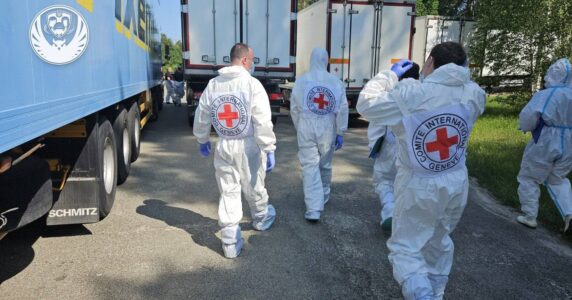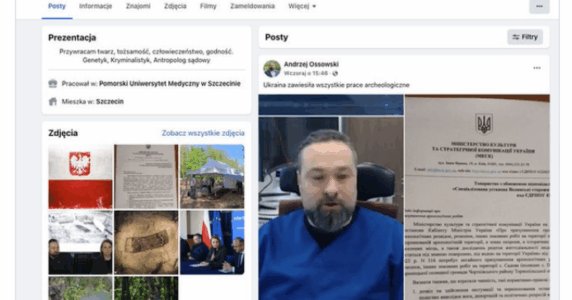Navigation and useful materials
Blinded by its own propaganda, Russia was not ready for defeat in the war against Ukraine, so it was forced to correct its own rhetoric hastily. Thus, Russia denies the victories of the Ukrainian army in the counterattack, continues to focus on the fictitious shortcomings of the Ukrainian defence system, and “changes the tactics of ‘the special military operation’,” assuring, as always, that “everything goes according to the plan.” We have collected several examples of how the Kremlin’s propaganda adjusts workbooks because of its military defeats in the war against Ukraine.
“There is no counteroffensive of Ukrainian troops, everything goes according to the plan of the “special military operation”
With the first lightning-fast liberation by the Armed Forces of Ukrainian cities and towns from the occupiers, Russian propagandists launched a whole campaign of excuses and explanations for the current situation. If Russia called the liberation of Snake Island from the Russian occupation a “gesture of goodwill,” then the loss of Balakliya, Izium, and Kupyansk was justified by the decision to “regroup” and “conduct an operation to fold and organize the transfer of the Izium-Balaklia group to the territory of the DPR.” In addition, on August 24, Shoigu announced “a deliberate slowdown in the pace of the Russian offensive” in order to “save the life of the civilian population.” Similarly, in March, the Ministry of Defence of Russia called the retreat of Russian troops from Kyiv and Chernihiv oblasts a “drastic reduction in military activity” in order to “increase mutual trust” (a hint of the possibility of continuing negotiations in Istanbul). The real reason for the retreat in both cases was serious losses and the inability to ensure the supply of remote communications.
The message “everything goes according to the plan” appears when something actually goes wrong. For example, this is how the Russian Minister of Defence explained the strikes of Ukrainian forces on the Snake Island and the beginning of the counterattack of the Armed Forces of Ukraine in Kherson Oblast. Since society does not know at least some plan of what is happening, any military failure of Russia can be justified by tricks within the “more global plan.”
“Russia is provoked to escalation of war and use of nuclear weapons”
Russian propagandists began to discuss the expansion of the Russian war against Ukraine to the “World War III” and its “completion with a nuclear strike” since the beginning of the full-scale invasion. Russian nuclear blackmail in response to fictional “Western provocations” has become particularly relevant recently in Putin’s addresses. It was mentioned with renewed vigour on September 21 in Putin’s video message, emphasizing that “this is not a bluff!”
In addition, such narratives are also disseminated through pro-Kremlin channels for European audiences. Thus, Russia puts itself in the role of a “victim,” who is forced to defend against the “unjust world” and incline to action in response, considering the use of nuclear weapons.
“New stage of the ‘special military operation’”
This message was again revived in Russian propaganda after the massive Russian missile attacks on Ukraine on October 10. It was then that the propagandists spoke one after another about the “new stage of dismantling Ukraine” with calls for “repeated and regular” shelling. They see “critical infrastructure” as their main goal. According to propagandists, all this is to “deprive Ukraine of comfort” because “Ukraine has adapted to the current war because of the Western support.”
“The work of air defence is ineffective. Air defence cannot cope with large-scale drone attacks”
With similar narratives, Russian propaganda tries to continue to focus on the shortcomings of Ukraine’s defence system to justify its own powerlessness. This narrative was especially active during the massive Russian missile attacks on Ukraine.
Stoking tensions on the part of Belarus
Belarus is intensively preparing, in their opinion, for the “attack on Ukraine,” and Russian propaganda will further play along, creating panic and helping to search for fictional “provocations” on the part of other states, including Ukraine.
“Ukraine is a terrorist state”
In the Kremlin media, there is a change in rhetoric about the definition of Ukraine from a “country of Nazis and fascists” to a “terrorist country.” It’s worth noting that in August, members of the Just Russia — For Truth faction even submitted a draft law “On Recognition of Ukraine as a Terrorist State and Confiscation of Property Belonging to Its Citizens in Favour of Russia” to the State Duma. So, it is this “take” that Russian propagandists and officials are now trying to disseminate most often on their agenda.
Centre for Strategic Communication and Information Security
If you have found a spelling error, please, notify us by selecting that text and pressing Ctrl+Enter.


